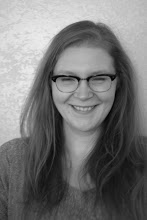"BOOM!" these thoughts said, "Your paradigm just shifted."
So here they are:
At times, there is a gap in each of us between our conscious beliefs and the beliefs from which our actions flow. It is the difference between saying, "I believe you are a child of God" and treating that person like dirt. It is the difference between thinking, "I love myself" and not taking care of oneself. These are extremes–there are a million little examples that rest in the grey area of life. Every action is punctuated by the professed belief and the motivating belief of the action itself.
Often–much more often than not–our actions fall perfectly in line with our underlying assumptions about life. I believe that my employer will pay me for my work, so I continue to go to work. I believe that believe that my car will run if I put gas in it, so I do so. The list goes on.
For those times that the stated belief and the action are not aligned, however, there seems to be a "jump" that our mind makes from stated belief to incongruous action. The truth that seems so clear to me that it is almost invisible* is that the bridge over this gap is paved with another belief or assumption that supercedes the stated belief. In the example above, the stated belief and the action are bridged possibly by the belief–or assumption as it were–that I am more important than you.
And the scary thing is that usually these "jumps" occur when our stated belief is much nicer and decent than the assumption that ends up winning out. Scary stuff, given that this means that we walk around thinking we are better people than we actually are; that we are masters at self-deception, telling ourselves (and others!) that we are true believers and that makes us exceptional. Scary stuff, given that this pattern is actually indicating a lack of belief in the professed value or truth. Do we–can we–possibly really believe that we are dealing with our divine brothers and sisters while disregarding their persons? Or, is it more plausible that intellectually we understand the doctrine of divine parentage, without really believing it?
All of the above clicked in my head in .05 seconds. It has taken me the better half of an hour and a diagram to explain here. I love the Spirit.
So here's the punchline:
The word integritās in Latin has the connotation of wholeness, completeness and entireness. In the OED (BTW, do you know about the free OED trial going on right now?), the English word integrity (from the Latin above) means
The condition of having no part or element taken away or wanting; undivided or unbroken state; material wholeness, completeness, entirety.With that in mind, I wonder how much integrity our actions have. Remember, I'm not talking about moral or ethical actions, apart from the fact that acting with wholeness can be the most moral and ethical way in which to act. I'm talking about how many of our actions match the belief in which we profess to believe.
While this pattern applies to the entire span of action in our lives, I am especially concerned about this topic in relation to the Gospel of Jesus Christ. I wonder whether, if we were really honest with ourselves, we would come to the conclusion that our "belief" in the doctrines of the Gospel form the foundational motivation for the majority of our actions. Would our lives be radically different if that we so?
I must think that my life would be grander and nobler if that were the case.
*Thanks, Neko!





0 comments:
Post a Comment